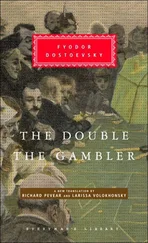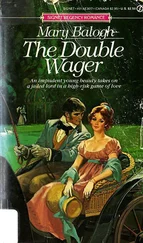No, that wasn’t accurate. Once-one time-she had convinced him to check himself into the Oakville Retreat.
Still, each of the photographs in her album was rich with memory. She paused over one that her father had taken of her mother and Robert and her when she was sixteen. That meant her brother would have been twelve. She and her mother were seated on the side of the sailboat her father had bought in one of the brief and (as always) not completely sincere periods when he was trying to find things for the four of them to do together. It was, she believed, the last time he would make such an effort. The boat was anchored in the sand on the beach behind their house that her father had created soon after that pathetic George Wilson had murdered James Gatz. Within days, as if to signal to the world that he didn’t give a damn if people wanted to stand around the mansion across the water and gawk at the light at the end of his own family’s dock, her father had buried the part of the lawn that sloped into the cove beneath a small mountain of soft, white sand. One morning, three dump trucks arrived filled with the makings of his new shoreline, accompanied by a half-dozen men with shovels and rakes, and by the end of the day the dock jutted into the cove from beach instead of lawn.
Most of the time they rarely bothered to tie the boat to the dock, because it was easier to simply drag it up onto the sand. The craft was far too small to take much beyond the secluded walls of the bay. And really only three of them could safely sail it at one time anyway, a further indication in Pamela’s mind of the disingenuousness of her father’s contention that he had bought it for the Buchanan family.
In the image, she and her mother were wearing suitably modest bathing suits. She was struck-as she was often when she saw pictures of her mother-by how much more beautiful Daisy was than she. Daisy Buchanan was only thirty-six then, a mere twenty years older than her daughter.
Pamela saw her brother was barefoot in the photo, but he was wearing long khaki pants and a shirt with horizontal sailor stripes. No doubt their mother had bought the outfit for him as a part of her codependent attempt to support her husband’s halfhearted effort to convince the world (to convince themselves) that this boat was just one more indication of the great fun they always had together as a family.
Soon after the picture was taken, her brother and her father fought. Again. By the time Robert was twelve, they were fighting often. This one was particularly nasty because it marked the first time that her brother had physically tried to intervene in one of their parents’ venomous little spats. Even now, Pamela could remember vividly what had triggered it. By accident, her father had positioned the three of them for the photograph in such a fashion that he could see in the background the house that once had belonged to James Gatz. Apparently, her father didn’t want that. At least that’s what he said. He said he wanted only blue sky and water behind them. And so, when he discovered what he had done, he had them all pose on the other side of the sailboat. But then the sun was going to be a problem. Consequently, he and Robert dragged the boat a few feet farther up in the sand so one would see only the gently rolling waves and the high summer sky, and the picture in the photo album finally was taken.
Oh, but her mother simply had to tease her father over the way he had insisted on rearranging the boat so this image of family harmony would not have behind it the shadow cast by a house that looked like a French estate with a tower that once had belonged to a bootlegger.
“Really, Tom,” she’d said, motioning behind her with her thumb and one finger, her hand limp at the wrist, “you act like there are ghosts over there. If you don’t want to see that old hulk of a house, we should move. We probably should have moved years ago.”
Instantly, the mood was curdled.
“I want you to see that house,” he told her. “I don’t care.”
“I don’t see why,” she answered. “You ought-”
“No, we shouldn’t have moved,” he snapped decisively. “I won’t be bullied, and I won’t have you bullied.”
“I have never been bullied by anyone. Present company, excepted.”
Her mother was sitting and her father was standing, and their eyes met and neither would look away for a long, horrid moment. It was her father who blinked first, but as he turned away, he told her, “It wasn’t that house that I didn’t want in the picture. It was any house. I didn’t want any house in the picture.”
“Oh, Tom, please. Now you’re a photographer? You actually think about things like composition?”
“You need to see it,” he said again.
“I just told you, I don’t need-”
“Consider it penance.”
“Penance? Do you even know the meaning of that word?” Then she rolled her eyes, craned her neck like a swan, and slowly shook her head. She allowed herself a small chuckle at his expense. This was too much for him.
“Fine, you want that house in the picture? We can do that!” he snarled. Abruptly he grabbed both her wrists, the biceps in his arms tensing against the short sleeves of his shirt, and he dragged her first to her feet and then down the beach a dozen steps so that her ankles were in the water. There he pushed her hard into the small breakers, where she landed with a splash on her bottom. Before she could rise to her feet, he squatted, brought the camera up to his eye, and snapped a picture. Then another. She squinted back at him defiantly but didn’t say a word or make a move to stop him.
“You will always see that house,” he told her. “Always!”
Both Pamela and Robert had seen their father manhandle their mother before. But never outside. Never when the two of them hadn’t been drinking or weren’t enduring the pain of a serious, lights-out hangover headache. And so before either Pamela or their mother could stop him, Robert ran at Tom and pummeled him so hard in the stomach and with such unexpected ferocity that he knocked the wind out of him. Had the large camera not had a strap that Tom had looped around his neck, it probably would have splashed into the water when he doubled over and the film inside it ruined.
“Stop it!” Robert screamed at him. “Don’t hit her! Stop it!”
Sometimes Pamela had tried to de-escalate her parents’ fights before they grew this violent by changing the subject. By bringing up a boy in whom she had some interest-a surefire way to get both of her parents’ attention. Some evenings she even had the foresight to water down the gin. On this occasion, however, she simply stood by as a few churlish comments had mushroomed into this public, midsummer explosion, and now-for the first time, but not, alas, the last-her brother had involved himself by attacking the proud and arrogant and physically intimidating Tom Buchanan.
Their mother quickly climbed to her feet, rising so fast that the water poured off her bathing suit in streams and her emergence made a great sucking sound in the small spot in the cove where she had fallen, and she managed to get between her husband and her son just as Tom wheeled on the boy with the back of his hand. Instead, he hit Daisy, and he hit her so hard in the cheek that her head whirled around as if it were on a spindle and Pamela screamed because she thought he had broken her neck. He hadn’t, but Daisy corkscrewed into the sand and would have a bruise on her face that would last into the autumn. Both of her children fell upon her and hugged her. They were desperate to know how badly she was hurt.
Still winded, Tom watched them for the briefest of moments, then stomped from the shallow water with his camera bouncing heavily against his chest and started back up the manicured lawn to the house. Pamela remained with her mother and her brother on the beach for at least twenty minutes, until they all heard first the creak of the broad doors on the carriage barn opening and then the roar of the man’s new black and red Pierce-Arrow. Only when the sound of the engine had completely receded in the distance did they shuffle like wounded soldiers up to the house and start to ice down Daisy’s face. The woman didn’t even try to lighten the mood with a remark at her husband’s expense.
Читать дальше












